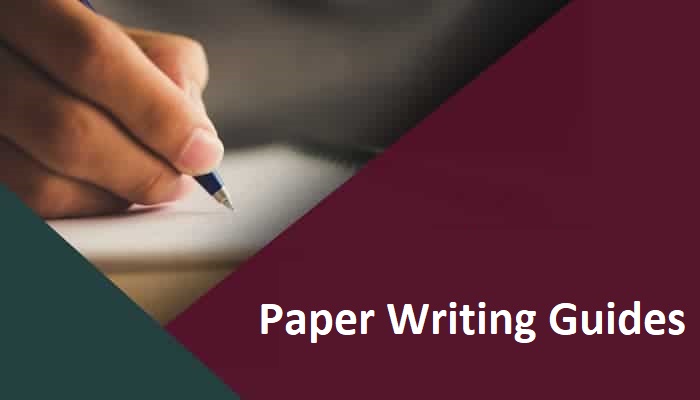All Paper Writing Guides in One: How to Write a Top-Notch Piece?
Paper Writing Guides Condensed: 9 Top Tips on Writing Academic Papers

If you are interested in these things at all, you probably know that you can find dozens upon dozens of paper writing guides on the Internet. They present this topic from all possible sides: some deal with essays, others with term papers, still others with coursework and dissertation writing. Some focus on formatting, others cover overall structure, still, others deal with stylistics. It is easy to get lost in all this information; and, of course, when you have to submit your academic paper tomorrow, it is a little bit late to study all these guides. In this article, we will give you a quick and dirty rundown of the most important tips that will help you write your assignment.
1. Choose the Right Topic
Whether you study in school or university, the topic is what makes or breaks a paper. Choose poorly, and you will be stuck with an assignment that will be difficult to write while unlikely to bring you a good grade. Look for a topic you are personally interested in and know a lot about in addition to what you have learned in class.
2. Prepare a Plan/Outline
Some students believe that writing an outline means wasting time, as you can spend this time writing the essay itself. However, most professional writers agree that every minute spent preparing a plan or an outline saves at least five minutes later on. If you follow an outline, you are less likely to forget something, you do fewer rewritings, and the overall structure of the paper is better.
3. Check, Edit, Proofread
After you finish your paper, do not be in a hurry to submit it. Let it alone for a day or two, then check, edit, and proofread it. You will be amazed how many flaws and mistakes have evaded your attention before. To improve your results, you can hire an online proofreading company to assist you with this task.
4. Do not Use Plagiarism. Ever
Getting accused of plagiarism is probably the worst thing that can happen to a student in regard to his/her academic work. You may think, 'Nobody is going to punish me if I simply copy a few fragments here and there and add them to my paper'; however, these days even high school teachers use plagiarism detection tools that make short work of such practices. If you write a serious assignment, like a college admission paper, you should make sure that your writing does not accidentally resemble any existing texts on the topic.
5. Use Active Voice
It is not exactly a law, but most authorities agree that you should prefer active voice to passive wherever possible. It makes your writing easier to follow, removes unnecessarily convoluted structures, and gives your style a more lively, energetic feel. However, do not mechanically replace all passive voices with active ones – in some cases, it is still an optimal choice.
6. Vary Your Sentence Length and Structure
The writing style is important, even if you study business or another similarly pragmatically oriented discipline that is not supposed to be overly concerned with such things. If your writing is choppy (i.e., consists of very short and similarly structured sentences) or, vice versa, if it is full of long-winded and convoluted sentences, it will leave an unpleasant impression and will be hard to follow.
If you want not just to transmit the information, but also use the right style, use sentences of varied length and structure. Follow a few short sentences with a longer one. Avoid using several sentences using the same structure one after another. Use different types of punctuation marks to further increase the variety of your expression.
7. Be Concise
Both when you write and when you edit and proofread your paper, constantly ask yourself, 'Do I really need this word/sentence/paragraph? Can I do without it? Is it necessary to get across the message of the paper as a whole?' Adding extra words is cheap and easy, anybody can do it. It is expressing your ideas in as few words as possible that is the true sign of an excellent writer.
8. Make Sure You Follow the Instructions
You will be amazed how many students get poor grades simply because they failed to read the instructions carefully or didn't bother to learn the specifics of formatting used in their college. For example, formatting conventions in the UK are different from those in the USA, and if you do not know it, you are bound to make some mistakes.
9. Do Not Be Afraid to Ask for Help
Many online services offer writing assistance for sale. If you feel your qualifications are not enough to deal with your task, do not shy away from soliciting their help.
We hope that these tips will be helpful the next time you have to write an academic paper!